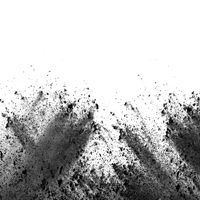Combustible Dust
August 10, 2018
 Many workers are not aware that there are fire and explosion hazards posed by many different combustible dusts. Metals like aluminum and magnesium, along with wood, coal, plastic, sugar, flour, paper, and certain textile materials, can pose a fire or explosion hazard when present in fine dust. These dusts can be found in several industries, including:
Many workers are not aware that there are fire and explosion hazards posed by many different combustible dusts. Metals like aluminum and magnesium, along with wood, coal, plastic, sugar, flour, paper, and certain textile materials, can pose a fire or explosion hazard when present in fine dust. These dusts can be found in several industries, including:
- Agriculture
- Food processing
- Furniture making
- Tire making
- Pharmaceuticals
- Coal processing
Sometimes these dusts accumulate on surfaces and remain there without issue. However, a minor change in the environment can initiate a fire or explosion. If a spark occurs or equipment failure causes dust clouds, then a fire or explosion can result.
Combustible dusts are especially dangerous because after an initial ignition or explosion occurs, dust that is dislodged or dispersed can cause secondary fires or explosions. A chain-reaction can happen, and the fire or explosion can propagate in an instant. Such workplace fires and explosions have caused significant loss of life and property.
Current OSHA Regulations
The Occupational Safety and Health Administration (OSHA) regulates hazards posed by combustible dust through a variety of standards; one being an electrical hazard standard. This is a performance standard that requires an employer to demonstrate that the electrical equipment used will provide protection from the hazard posed. The standard divides workplaces into classifications based on the hazards present. Electrical equipment that is made intrinsically safe or dust ignition-proof can provide protection against combustible dust explosions in these places.
OSHA also has a housekeeping standard that requires places of employment be kept in a clean, orderly, and sanitary condition. Citations can be issued if combustible dust accumulates on surfaces and poses a fire or explosion hazard. OSHA can also issue citations based on the general duty clause if a hazard is identified but there is no specific standard to address it.
Recommendations for a Comprehensive Standard
The U.S. Chemical Safety Board (CSB) is an independent federal agency that investigates serious chemical incidents. They recently made a formal recommendation to OSHA to adopt the National Fire Protection Association (NFPA) guideline, NFPA 652, as its standard for controlling combustible dust.
The CSB believes this will provide better protection to workers than OSHA’s approach of regulating the hazard. Preventing fires and explosions involves assuring that the hazard is understood, regulating combustible dust comprehensively so the hazards are properly addressed, and enforcing regulations to eliminate the hazard.
Cherry Hill Workers’ Compensation Lawyers at DiTomaso Law Advocate for Worker Protection
A workplace injury will change your life. At DiTomaso Law, our Cherry Hill Workers’ Compensation lawyers have extensive experience understanding workplace hazards and representing injured workers. If you have been injured at work, it is important to secure your rights to adequate compensation. Call us today at 856-414-0010 or fill out our online form to schedule an initial consultation. We are in Cherry Hill, New Jersey, and we proudly serve clients throughout the state.

Get A 100% Free Case Evaluation
From A Top-Rated Personal Injury Attorney
Call: 856-414-0010 or Chat Live Now
$11.7M
Tractor-Trailer Accident
$1.5M
Drunk Driving Accident
$1.3M
Defective Machinery Accident
01
02
03
04

